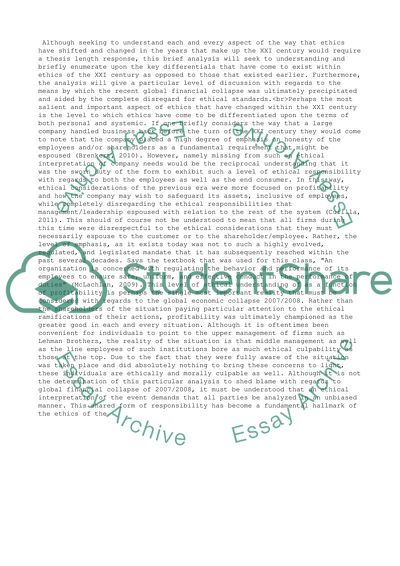Cite this document
(“Ethical leadership in the modern business market Essay”, n.d.)
Ethical leadership in the modern business market Essay. Retrieved from https://studentshare.org/business/1476138-ethical-leadership-in-the-modern-business-market
Ethical leadership in the modern business market Essay. Retrieved from https://studentshare.org/business/1476138-ethical-leadership-in-the-modern-business-market
(Ethical Leadership in the Modern Business Market Essay)
Ethical Leadership in the Modern Business Market Essay. https://studentshare.org/business/1476138-ethical-leadership-in-the-modern-business-market.
Ethical Leadership in the Modern Business Market Essay. https://studentshare.org/business/1476138-ethical-leadership-in-the-modern-business-market.
“Ethical Leadership in the Modern Business Market Essay”, n.d. https://studentshare.org/business/1476138-ethical-leadership-in-the-modern-business-market.


